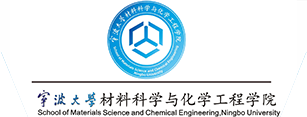报告时间:2023-09-02 上午9:00-10:00
报告地点:北区1号实验楼227
报告人:Douglas Stephan
报告人简介:
Doug Stephan, graduated with his BSc at McMaster (1976) and completed his PhD at UWO (1980). He then held a NATO PDF at Harvard, before beginning his independent career at the University of Windsor (1982). He was promoted to Associate Professor (1985), full Professor(1992) and named a NSERC Industrial Research Chair (2001), University Professor (2002), Canada Research Chair (2005), and Department Head (2003-2006). In 2008 he moved to the University of Toronto as a Professor and Canada Research Chair and in 2018, he was appointed University Professor. He was an Einstein Visiting Fellow at TU-Berlin from 20216-2019 and in 2020, he established an additional satellite laboratory at Ningbo University as a Zhedong Scholar Chair Professor. He was an Associated Editor for Chemical Society Reviews for 6 years, the Chair of the editorial board and is now Chair of the editorial board of Chemical Communications. In 2023, he was named the John C. Polanyi Chair of Chemistry at the University of Toronto.
Awards/Distinctions
2022 F.A. Cotton Award in Synthetic Inorganic Chemistry (American Chemical Society)
2016-2019 Einstein Visiting Fellow, TU Berlin.
2015 World’s Most Influential Scientific Minds
2014 Corresponding Member of North-Rhein-Westfaelia Academy of the Sciences & Arts
2013 Fellow of The Royal Society (London, UK)
2010 Fellow of the Royal Society of Chemistry (UK)
2005 Fellow of the Royal Society of Canada
报告摘要:
Over the last 15 years, the concept of frustrated Lewis pairs (FLPs) has emerged as an approach to transition metal-free hydrogenations as well as the activation of a wide range of small molecules. Indeed, the catalytic reductions of a wide variety of organic substrates, as well as the elegance of enantioselective metal-free hydrogenations have been developed. FLPs also react with or capture a wide variety of small molecules including but not limited to CO2, CO, SO2, N2O olefins and alkynes.
More recently, we have focused on chemistry relating to three important problems, CO2 reduction, Fischer-Tropsch and Haber-Bosch chemistry. In these efforts, we have shown that FLPs can provide a catalytic route to hydrogenation of CO2 using H2 in the presence of a silyl halide. This strategy allows the selective formation of methyl iodide and methane depending on the specific reaction conditions. The concept of FLP chemistry has been applied to alkali metal species, providing routes to the conversion of CO to isocyanides, as well as the homologation of CO, and the fundamental steps of C-C and C-H bond formation. Finally, turning to N2 reduction, we will describe a metal-free route to the capture of diazene and successive species in the subsequent reduction to NH3. While these latter explorations do not offer catalysis yet, they do provide insight and suggest that metal-free catalysis of Haber-Bosch processes may be in the offing.
欢迎广大师生踊跃参加!

